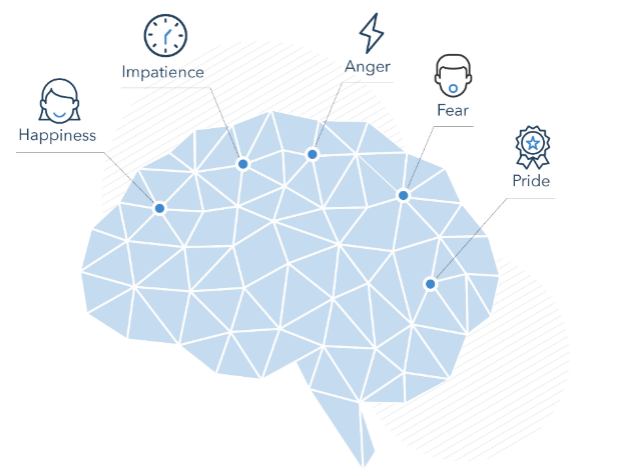People tend to believe that investing is simply about capitalizing on opportunities effectively at the right time and place, but there are many other factors that contribute to investment success. However, success in trading often depends on removing emotional factors from our decisions.

In market, no emotion
Before diving into why managing your emotions is so important, it's crucial to understand why the market has no emotions. Profit or loss, the market doesn't care how you feel. Market sentiment, the perception of market participants about a particular asset or general market condition, is the price and market driver, but the market itself is an inanimate object that simply represents the meeting point of market participants.

After you suffer a loss, you feel the market is against you, or after you make a profit, you feel that the market agrees with your thoughts and decisions. These perceptions are far from the truth. The market only rewards those who respect its characteristics, that is, the market is very unpredictable. The reason why it is so important to plan for all possible outcomes and determine the risk reward is so you can effectively deal with different situations and scenarios without being affected by the ups and downs of trading psychology.
Neutrality

Just as a car's neutral gear means staying where it is and not moving forward or backward, it's crucial to have a neutral emotional attitude toward investing so that decisions are kept objective and not overreacting.
When it comes to investing, the two emotions we are most prone to encounter are greed and fear. Each emotional response can confuse investment strategies and influence future behavior, leading to proactive mistakes. Take a profitable trade as an example. At times, traders ignore the original strategy, allowing greed to prevail in the decision-making process, rather than taking profits at the level set by the closing strategy decided before the trade starts. Keeping trades going for more profit can turn a successful trade into a losing trade, violating one of the most important principles in investing: Take profits and you won't get hurt. A winning trade turns into a losing trade, and it's not just a loss of trading capital; it can also lead to undisciplined behavior in the future.
On the other hand, many traders face loss-making situations where they keep their trades going beyond a set exit point, exacerbating their losses. People hope and pray that price action will reverse, turning a losing trade into a winning trade. Not adhering to the strategy or not adhering to the limits can negatively affect our future trading performance. Keeping a calm attitude helps you stay disciplined and maintain the integrity of your trading decisions.
To achieve long-term trading success, it’s crucial to adhere to a neutral approach to assessing trading opportunities, set limits and ultimately execute a position opening and closing strategy. When you feel like you're being carried away by your emotions, the best thing to do is to reset your mindset, pause your trades, or leave your trading device. Emotions make it difficult for us to be objective. This is why a trading plan plays such an important role in managing our psychology and feelings when we trade. With a clear objective perspective, proper preparation, and a neutral mindset, we can ensure that the risk-reward profile of the trade is in our favour, regardless of the outcome of the trade.




